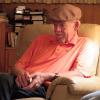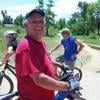Search the Community
Showing results for 'alcohol'.
Found 17,501 results
-


Travel Overseas - 4months post op
biginjapan replied to VooLivre2017's topic in POST-Operation Weight Loss Surgery Q&A
I definitely do! I travel a lot, in fact, I went to Germany when I was a month post-op. Although I never thought of myself as a big foodie when I travelled (I've always had a sensitive stomach so have had to be careful), it's so much different now as I am now painfully aware of what I can't eat. There's a whole lot more can't than can. :-( Even though I never went totally off plan, I did have a couple of small breakfast sausages, a bit of bread here or there, and lots of cheese (the only source of protein that was available wherever I went). I ended losing about a pound a day on that trip, so maybe my body liked the change up in foods. It was also the first trip I've been on where I hadn't had any alcohol. I'm very much still in the "zone", that is, I don't crave food, I rarely feel any real hunger (and if I do it may just be gas/acid), and I have no problem passing over what I used to eat and drink all the time. But I do feel like you sometimes, I mourn food, I miss being able to eat what I want, to go with friends and not worry if there will be something on the menu that I can mostly eat, etc. But I never want to go back to where I was, so eventually I hope the mourning period will pass. -


Over indulged yesterday, acid-y tummy today
Teachamy replied to dansgem's topic in POST-Operation Weight Loss Surgery Q&A
Our center said no alcohol (ever) after surgery. It is crazy how different post-op messages are from do. to doc.! I am still pre-op, but I wanted to tell you that you are only human! I am glad you got the chance to enjoy your evening with a glass of wine! Have you ever tried peppermint tea? I even like it iced, and I find it helps when my stomach isn't feeling well. Also, "Gas-X" sells a product that disolves on thr tongue. They are minty and have always helped with an acid tummy for me. Best. Amy -
I was banded on June 15, and have been feeling (and healing) pretty well. My surgeon moved me to pureed/mushies ahead of schedule at my post-op visit on Tuesday, so I'm experimenting a bit with those. My incision seems to be healing well, but man I do not like swabbing out my belly button with rubbing alcohol 3-4 times per day, hehe! I am becoming a bit concerned about a mild cough that I've had since 2-3 days post-op. It's not all the time, but it is worse in the mornings, when I bring up anywhere from 1/2-1 tsp of green/yellow phlegm. I don't know if this is just my lungs healing up from irritation from the oxygen tube down my throat during surgery or what. If it was constant throughout the day, I would have already contacted my surgeon's office about it, but it's just here and there, mostly in the morning. I don't want to make a mountain out of a molehill, and my surgeon is out of town until sometime next week. Does this sound like something I should be concerned about? I don't have any sort of fever, and am otherwise feeling pretty perky! :thumbup:
-


Anyone else get sick drinking this?
catwoman7 replied to cristobal's topic in POST-Operation Weight Loss Surgery Q&A
some people become lactose intolerant after surgery (sometimes temporarily, sometimes permanently). Others can't tolerate artificial sweeteners, especially sugar alcohols (names of sugar alcohols end in "-ol", like xylitol). Maybe one/both of these?? -


Alcohol (drinks) consumption after sleeve.
carolinda2815 posted a topic in POST-Operation Weight Loss Surgery Q&A
Ok so I was sleeved August 4th and my doctor told me I had to wait 3 months before drinking. I usually go out with my coworkers after work and it's been a little frustrating not being able to drink. I'm not a big drinker but a social drink is always fun. How long you waited or what did your doctor recommended. Halloween is coming and I'm dressing up for the first time since I feel good -


alcohol
mrschildress2014 replied to americangirl302's topic in PRE-Operation Weight Loss Surgery Q&A
I would avoid it! It's major surgery involving all your organs and poisoning them with alcohol is probably not a good idea. Tempting I know! A margarita in Mexico?! I wish! -


Alcohol...you do, you dont? How soon?
IrBaileyzMa posted a topic in POST-Operation Weight Loss Surgery Q&A
I know this may be a little soon to think about, but I have to ask. I know that once able, that alcohol effects you a lot quicker and with a much smaller amount than previous to being banded. However, how soon did you start to attempt even a sip of alcohol? If so, what kind? I know people who have had the lap and the gastric. Some of them are back to drinking beer (I already miss this!) like they were prior to surgery, and some still play it safe with wine and clear liqours. Please dont assume that I am an alcoholic, but I am curious because I have 3 weddings to attend within the coming months, including bachelorette parties and I was curious where I stand. I dont want to try anything too soon, but I dont want to be too conservative either. -
I still grapple with food addiction. I was never one for alcohol or drugs (not even prescribed sleeping drugs). I have a hard time sleeping, but when I ate a big meal, I'd sleep like a baby, hence food became my comfort, my relaxer, my natural sleeping pill. Like any addiction, it is difficult to overcome. Since wls, like you said, it's better, but we just have to stay focused to be successful. Sent from my SM-N910V using the BariatricPal App
-


Question about Net Carbs
ParrotheadCathy replied to mbranham0306's topic in POST-Operation Weight Loss Surgery Q&A
I am no longer Tyle 2 Diabetic! yipppeeeeee! BUT, when I went to diabetes school, they helped me develop a diet to control my diabetes. It said I could have a specific number of grams of carbs per day. I was told, like Jen says, to subtract the fiber grams from the casrb grams to be the carb grams I actually had to count. They never told me anything about sugar alcohol grams..... -


5 months post-op, lost 11 lbs last two months! HELP
cockapoomom posted a topic in Tell Your Weight Loss Surgery Story
I am so disappointed in myself. I have gone from 290 date of surgery, March 16 2015 down to 235 as of today. The scale has not moved in 3-4 weeks. I eat about 1,000 - 1,200 calories a day. I'm not consistent with Protein or Water. I am failing myself. My stressful job keeps me occupied about 9am - 7pm. I don't exercise much, but am active on the weekends. I drink alcohol on the weekends, maybe 4-5 drinks a night, vodka and sugar free cranberry juice. I had my appendix out in late June and was out of commission for a couple weeks. My doctor already thinks I'm a failure, he said I'm not doing as good as other women have he has sleeved. I dread seeing him, it's always a lecture, statistics shoved down my throat and I end up feeling like a failure for getting sleeved and still being obese. Anyway, I would like some suggestions. I am starting to log my intake into MyFitnessPal and be mindful of what I am consuming. I've set a limit if 1,000 calories. Any motivating tips or encouragement would be appreciated. Anybody with similar stories who turned their ship around out there? Any advice, feedback or even tough love will be invited. I really want to hit my goal of 160 lbs, but doctor doesn't think I will based on statistics of my current weight loss and what I'm "trending". Hugs!- 12 replies
-
- Stall
- weight loss
-
(and 2 more)
Tagged with:
-


....a virus something or a VSG something?
VSGAnn2014 replied to D. Kennedy's topic in POST-Operation Weight Loss Surgery Q&A
Sugar alcohols (check your Protein drinks' and protein bars' labels) can and do sometimes cause explosive diarrhea. They sometimes do that for me. But not always. Any chance you've eaten at Chipotle's lately? Seriously, this could be related to your post-op diet -- or it could just be a food bug you picked up somewhere. And, of course, do hydrate yourself a lot. BTW, you're not going to die if you just drink Water for 24 hours and lay off all foods. Could be worth a science experiment. -


2Oz White Wine With Water
DLCoggin replied to jadeharper's topic in POST-Operation Weight Loss Surgery Q&A
My surgeon said no alcohol for six months. There are a number of reasons behind that recommendation. Internal healing takes quite a long time and drinking alcohol prior to the pouch being completely healed is an invitation for ulcers. All forms of alcohol are essentially sugar which can result in dumping. Alcohol is empty calories with essentially no nutritional value. And since it hits you so much faster and harder than it did before, it can make it more difficult to follow the protocol. All good reasons and I would not encourage anyone to drink alcohol prior to six months out. I enjoy a glass of wine with dinner. But I didn't even try it until I was six months out. We all have to make our own decisions but it's a good idea to consider all of the pros and cons. -


Year Out Tomorrow - Feeling Lost
Beausie Bunny posted a topic in POST-Operation Weight Loss Surgery Q&A
I am a year out from surgery tomorrow. I had RNY 11/07/16. I lost 155 lbs. Now I have gained back 15. I'm stuck because I suffer from Major Depressive Disorder and Generalized Anxiety. I go to therapy weekly and group every other week. I also am on medication for my mental illness. All I want to do is eat. I don't drink soda or alcohol. I get around 50-60 grams of protein a day. The rest is sugar and carbs. I feel so hopeless and like I've let everyone down. I can eat a whole box of cookies in an evening. I try to drink calorie-free things. I do well for a couple days and just do soft foods and track my calories and get protein, then I get depressed and overeat. I don't want people getting onto me but I'm getting suicidal due to this problem. I can't get big again. I'd rather die. I have an appointment for a one year checkup later this month and I'm so frustrated and depressed that I feel worthless. Has anyone experienced anything like this? Any advice? I'm in DBT and therapy and trying everything I know to do. I'm a college student and always on the go, I need some help. Thanks in advance.- 6 replies
-
- weight gain
- lost
-
(and 2 more)
Tagged with:
-


Psych evaluation
confusedturtle3 replied to Amers29's topic in PRE-Operation Weight Loss Surgery Q&A
My psych needed to sign off on me, she sent something to my surgeon that said I don’t have an eating disorder, and the worst thing I am addicted to is carbs. She didn’t make final decision on me having surgery but if I did have (past or present) an eating disorder or an addiction to drugs/alcohol she would not recommend me for surgery. Have a great day! Amanda [emoji16] HW 248 CW 241 Surgery Date: pending 11/21/2017. Goal weight 150’ish [emoji23] -


Acid stomach after drinking alcohol...
gentylwind replied to LookingForMe's topic in LAP-BAND Surgery Forums
It is more likely that your body cranked out insulin in response to your eating and drinking the other night, triggering your body to want you to eat for the insulin to have "something to do". If you drop back to a high Protein, vegetables, no simple carbs, no alcohol, no fruit way of eating for a few days your hunger perception and cravings for more food will most likely disappear. -


How To Date With My New Sleeve
lovePINK replied to Tshaunda's topic in POST-Operation Weight Loss Surgery Q&A
another fun idea is going to an arcade or something at the mall. that doesnt really involve food or alcohol.. i did this the other day with my daughters father and we had a nice time -
How long did anyone wait to have an alcoholic drink? My dr said to drink on special occasions but never now long I should wait.
-


Feeling alone[emoji17][emoji17]
Daniel2015 replied to befitnotskinny's topic in POST-Operation Weight Loss Surgery Q&A
Hang in there! As others have wisely pointed out, this may not be your finest hour, but it is the gateway to a happier, healthier you. Your body has endured a trauma and that will spill out. Emotions begin coming up that you don't foresee because of chemical and hormonal changes, not to mention your main coping (speaking for myself, was removed)-it necessitates new methods of dealing with life; which is new ground. The avoidance of emotions is all but gone because like an alcoholic who becomes sober, you are truly alert and awake in a new way-that takes time, training and coaching. Support groups are a great place to learn those skills. Sending you good thoughts! Daniel Sent from my iPhone using the BariatricPal App -


Hi I'm New Here I Am 6 Post Sleeve Surgery
tarakuk replied to Jennifer.L's topic in POST-Operation Weight Loss Surgery Q&A
I'm 12 days post surgery. I was told no alcohol for a year. I don't know about cake though. It's a lot of sugar which could make you feel bad. Good luck and Happy Birthday! -


Diet drinks and Artifcial sweeteners
neveragain replied to Freebigbennow's topic in LAP-BAND Surgery Forums
Splenda is basically glucose with a bunch of alcohols binded to it so the enzymes that break down glucose don't recognize it, therefore it won't get digested. -
Which just goes to prove that food is an addiction. Alcoholism, obesity, gambling, smoking, etc. run through my family. I have one uncle who didn't have any of the above but he was obsessive about his diet and exercise. He ended up in therapy where he learned that, in his case, it was also an addiction. He still runs in marathons and still enjoys working out, but there is a balance in his life now. Any compulsive behavior taken to extremes is a problem. I belong to several WLS lists although this is the only one I actively participate in and there are always a few people who very obviously have traded their food addiction for an addiction to physical exercise. Some would say it's the better trade, but an addiction is still an addiction. The key is 'balance'...in our eating and in our life. .
-


Sugar free Popsicles n gum
RazorbackSusan replied to diamondtammi's topic in POST-Operation Weight Loss Surgery Q&A
Gum is not recommended by my surgeon because of the gassiness it can cause. Chewing gum almost always results in swallowing air. Most sugar free gums are sweetened with sugar alcohols rather than aspartame or Splenda and so on. Those can make you gassy too. Sugar free popsicles are ok on my plan, but sometimes cold fluids can make your pouch really hurt. We were told to stick with room temperature fluids to avoid that problem. -
I am going to Vegas next month and I will be about 2 1/2 months out from surgery by then. I would love to be able to have a drink socially here and there, but I don't want to harm my tummy. has anyone tried it that soon and if so was it ok? Thanks Sherri
-


Light Headed When I Stand Up
Happy Camper replied to franfaith's topic in POST-Operation Weight Loss Surgery Q&A
My potassium was low...you might want to also talk to doctor about your levels...stay hydrated and yes watch the BP meds. Low Potassium (Hypokalemia) Overview copied from "emedicine", I am not a nurse or doctor: Low potassium levels (hypokalemia), can cause weakness as cellular processes are impaired. Potassium is a mineral (electrolyte) in the body. Almost 98% of potassium is found inside the cells. Small changes in the level of potassium that is present outside the cells can have severe effects on the heart, nerves, and muscles. Potassium is important to maintain several bodily functions: Muscles need potassium to contract. The heart muscle needs potassium to beat properly and regulate blood pressure. The kidney is the main organ that controls the balance of potassium by removing excess potassium into the urine. When potassium levels are low (hypokalemia), you can become weak as cellular processes are impaired. The normal potassium level is 3.5-5.0 mEq/L (mEq/L stand for milliequivalents per liter of blood and this is a measure used to evaluate the level). Low potassium is defined as a potassium level below 3.5 mEq/L. Almost one out of five people hospitalized in the United States has a low potassium level. People with eating disorders such as anorexia nervosa and bulimia, patients with AIDS, alcoholics, and those who have had bariatric surgery have a higher incidence of hypokalemia than others. -


Throwing Up After I Eat And Not Being Able To Drink Liquids In The Morning
2muchfun replied to kaulana's topic in Tell Your Weight Loss Surgery Story
Cut the soda and alcohol for a week to eliminate that possibility. Smaller bites and lots and lots of chewing to avoid getting stuck. I'm on fill 5 and it's difficult to remember to slow down, take small bites and chew, chew, chew after years of scarfing down food. But when I follow the rules, I don't get stuck, don't burp(unless I eat too much) and don't throw up.






